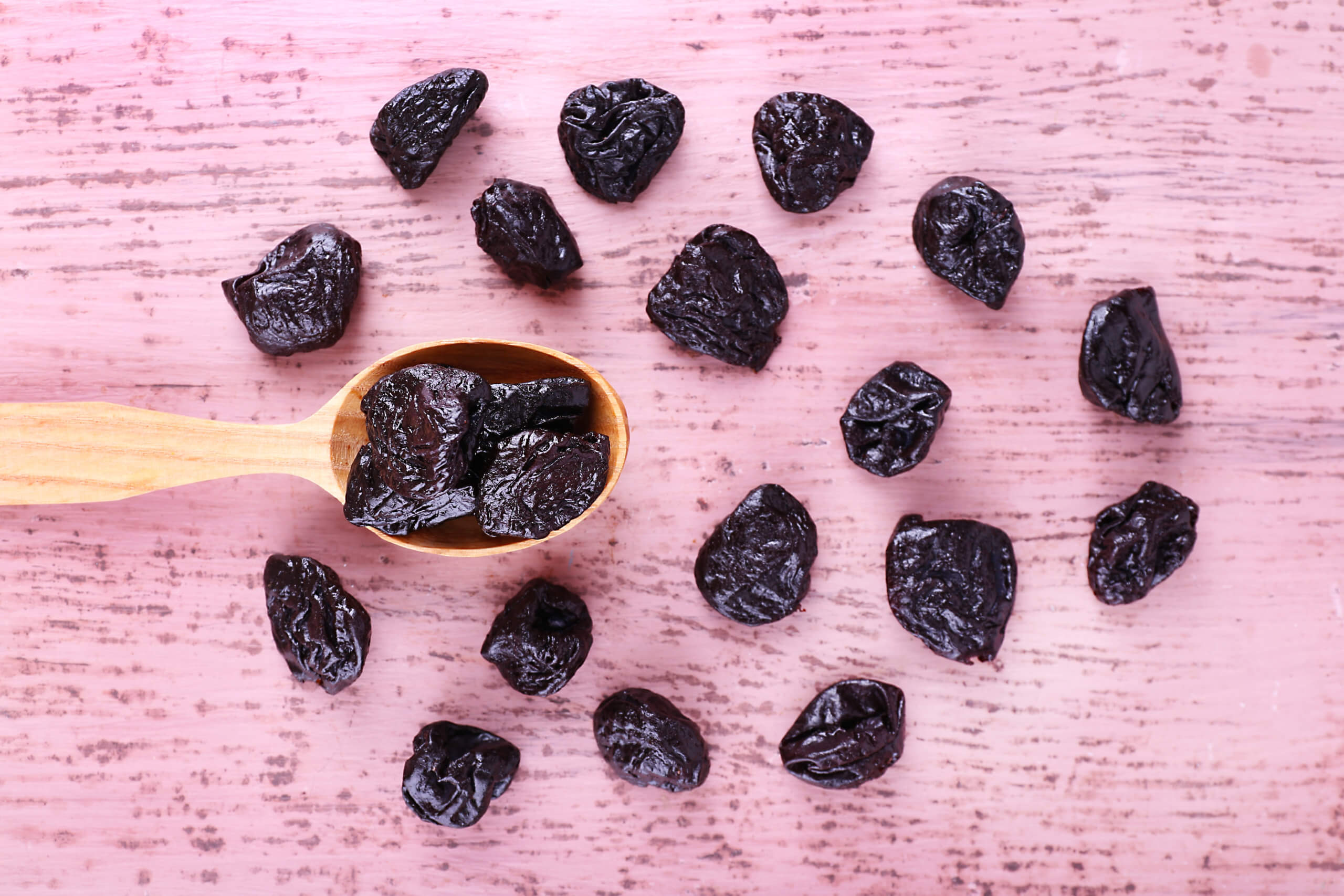If you’re looking for a new food to add into your diet and get stronger bones, look no further than the prune. Researchers from Penn State University report that daily prune consumption helps preserve bone mineral density (BMD) in the hip and protects against fractures in postmenopausal women.
BMD typically deteriorates at a rather rapid pace following the onset of menopause in women. On a related note, women over the age of 50 are especially likely to suffer hip fractures. As one can imagine, an especially nasty hip fracture can lead to extended hospital stays, loss of everyday independence, lower quality of life, and even a shortened lifespan.
Notably, this study is the first of its kind to draw a clear connection between prune consumption and favorable hip BMD outcomes among older women. All in all, study authors say this work makes a strong case that prunes constitute a legitimate food-based therapeutic option for promoting strong bone health.
“It is exciting that the data from our large randomized controlled trial in postmenopausal women showed that consuming 5 to 6 prunes a day demonstrated the benefit of protecting from bone loss at the hip,” says principal investigator Mary Jane De Souza, a distinguished professor at Penn State University, in a media release. “Our data supports the use of prunes to protect the hip from bone loss post menopause. Indeed, this data may be especially valuable for postmenopausal women who cannot take pharmacological therapy to combat bone loss and need an alternative strategy.”
Just 5 to 10 prunes a day can help the gut and the bones
While it is true that earlier clinical trials in postmenopausal women have suggested prunes can help prevent bone loss, researchers consider this latest work a milestone on these topics thanks to it featuring the largest clinical trial to date (a sample of 235 postmenopausal women).
The team’s previous study into prunes found eating 10 prunes (100 grams) every day for an entire year improved bone mineral density within the forearms and lower spine. Consuming anywhere from 50 to 100 grams of prunes daily for six months prevented total loss of bone density and lowered TRAP-5b levels considerably in comparison to other older women not eating prunes. Scientists consider TRAP-5b a marker of bone resorption.
The research team hypothesizes that prunes spark healthier changes within the gut microbiome, subsequently lowering inflammation within the colon. Such developments likely diminish levels of both pro-inflammatory cytokines and oxidative damage markers.
On a more detailed level, the results of the new analysis state women who ate 50 grams of prunes (5-6 prunes) daily for one year maintained healthy hip BMD. Meanwhile, females who ate no prunes lost significant levels of bone mass at the hip. The risk of suffering a hip fracture increased among the non-prune group as well.
“Just a handful of prunes can easily be added to anyone’s lifestyle,” concludes the California Prune Board’s Nutrition Advisor, Andrea N. Giancoli. “Prunes pair with so many flavors and textures and work well for individualized nutrition plans. Mix them into salads, trail mixes, smoothies, savory dishes – you name it. The naturally sweet flavor of prunes makes them a versatile ingredient or convenient snack for anyone.”
The study was presented at the World Congress on Osteoporosis, Osteoarthritis and Musculoskeletal Diseases.
